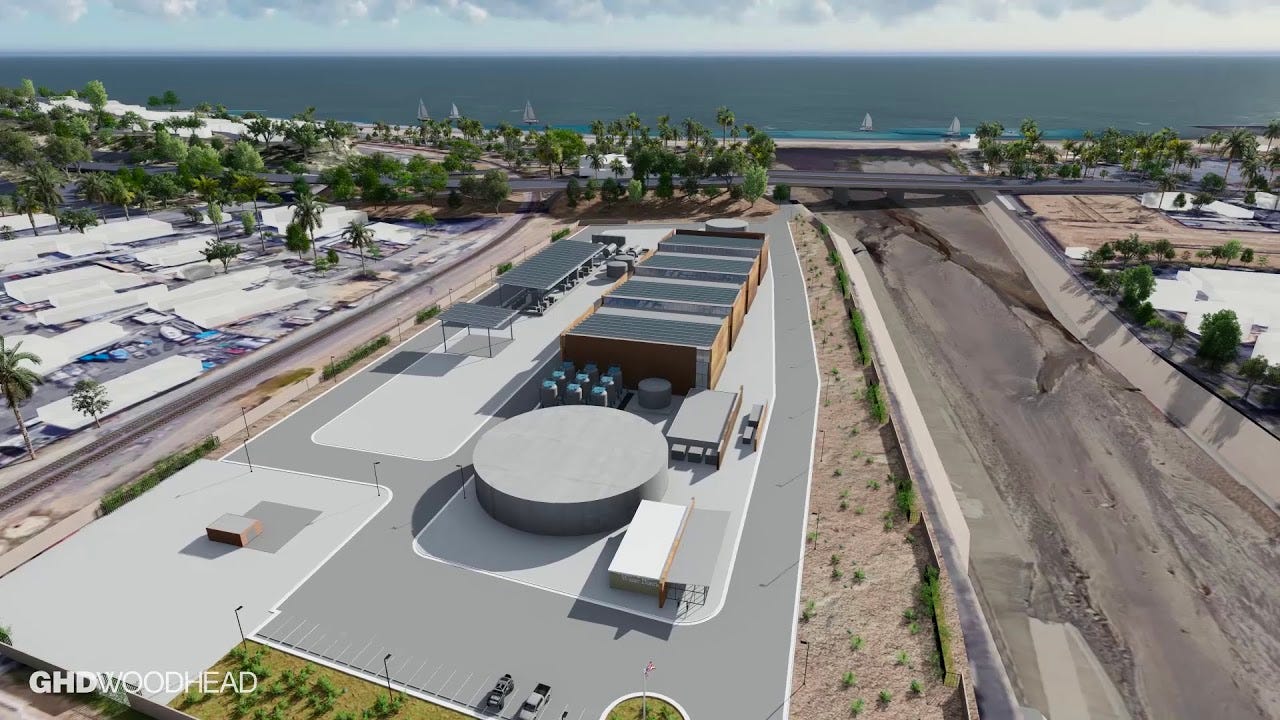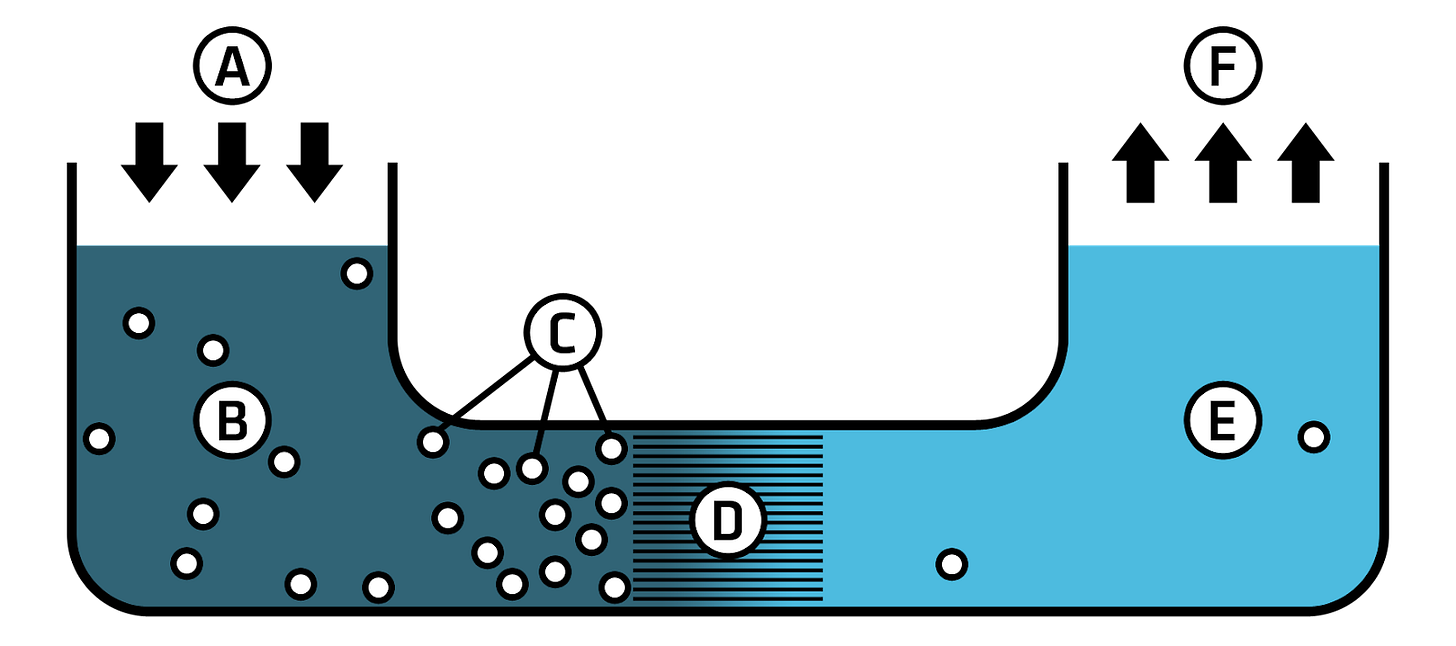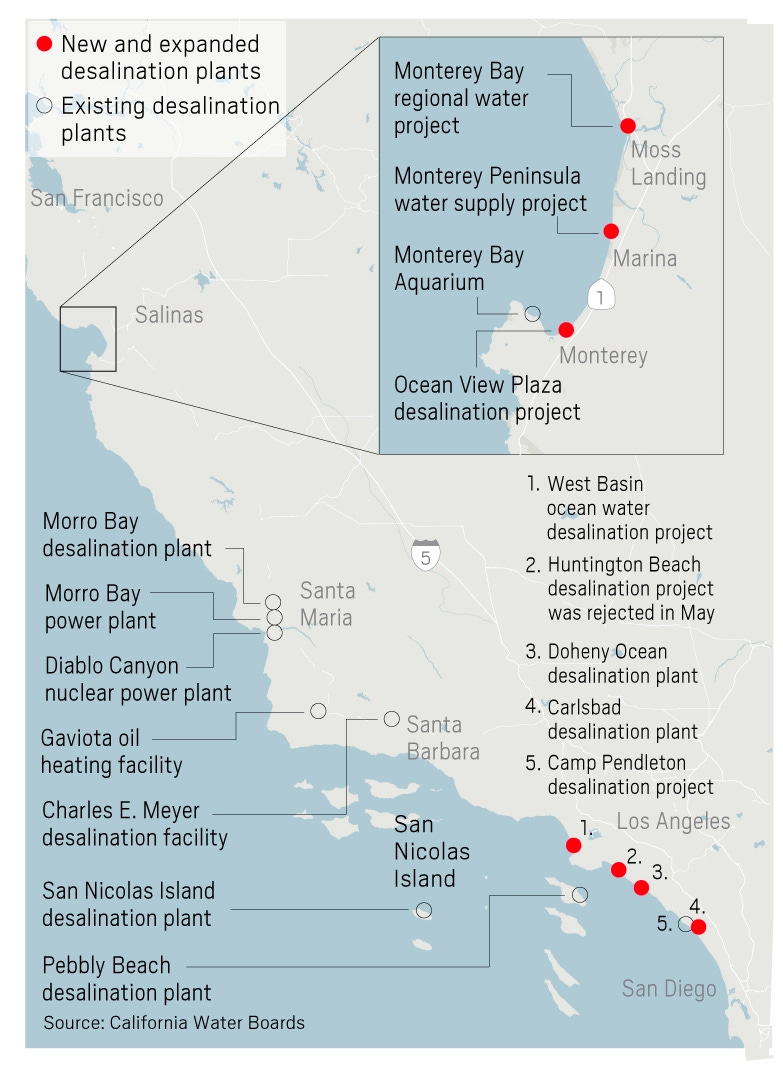SF Bay Climate Tech: March 20 - March 26, 2023
Sample sustainable snacks, rival energy happy hours, fusion, networking, and more!
Hi friends,
Start the week tomorrow in San Francisco with Climate Tech Networking from Women+ in Climate featuring speakers from Meta and SFBCDC, or get involved in the local action in the Peninsula with the sustainable Foster City workshop. On Wednesday, stay in SF and head downtown to sample nine new sustainable food brands, or head to the Commonwealth Club on the Embarcadero to hear from Bay Area legend Rebecca Solnit talk on hope and climate. Feeling creative? Head to the Art and Climate Party! in the Mission. On Thursday, choose between two dueling energy groups: the DER Taskforce Bay Area Happy Hour in Oakland, or the YPE New Member Happy Hour in Bernal Heights. Looking forward to next week, plan on learning about Our Fusion Future with Lawrence Livermore Director Kim Budil.
Cheers,
Alec, Sonam, and Tamar
As always, you can find a chronological list of upcoming events below the Hot Take
Hot Take: Desalination - A Salty Controversy
Last week, we discussed California Governor Gavin Newsom’s recently unveiled strategy to bolster California’s water supply. Today we’ll dive back into it, zooming in on one specific commitment in the plan: increasing desalination. As with other channels of California water policy, desalination is no stranger to controversy. Recent pivots to approve desalination plants in the state have left some cheering the advent of new sources to meet the shrinking water supply and others voicing concerns about the projects’ costs, energy demands, and environmental impacts.
In October 2022, the California Coastal Commission green-lit a $140 million desalination plant in Orange County’s Dana Point. This marked a pivot from that body’s unanimous rejection in May 2022 of another desalination project in nearby Huntington Beach, after a whopping 20+ years of debate. Despite its approval, the Dana Point plant – called the Doheny Ocean Desalination Project – still faces criticism from a coalition of environmental groups and the Society of Native Nations, who warn that the plant’s discharge could pollute waters home to whales and dolphins. The plant will need a lease from the California State Lands Commission before construction can begin, a process which is expected to take three long years!

So what exactly is desalination? Imagine a time you’ve craved a drink while swimming at the beach, wishing a gulp of the water surrounding you could quench your thirst. Put that salty water under high pressure, forcing it through a semi-permeable membrane whose pores are too small for salt molecules to pass through, and your wish is granted.

This process is called reverse osmosis, one of the most common forms of desalination. The aim is turning saltwater into fresh, clean water. Desalinating ocean water is appealing for coastal cities, given the abundant and reliable raw supply of saltwater. Israel and the United Arab Emirates, along with cities across the Middle East, Australia, Mediterranean Europe, the U.S. Southwest, and Australia, already rely heavily on ocean desalination as a water source. There are more than 20 ocean desalination plants operating in California. Many more plants around the U.S. remove salt from brackish (salty) water sources, such as inland groundwater.
Sound a bit like turning water into wine? While desalination holds promise in countering water shortages in the Golden State and beyond, several issues stand in the way:
Harm to aquatic life: Fish can be killed from becoming trapped against screens that protect intake valves on desalination plants. Small organisms such as bacteria and plankton can be sucked into the plants and killed when they pass through the treatment system. Desalination plants also discharge brine and wastewater, which can kill nearby aquatic life if the process is mismanaged.
Energy intensiveness: Generating the large quantity of energy that desalination plants consume will cause environmental harm until it can be done carbon-free.
Unaffordable costs: Cost breakthroughs on major, market-ready technology for ocean desalination are not expected in the near term, and costs may increase in response to rising energy prices, which account for up to half the cost of removing salt from water.
Lower cost alternatives: The first and cheapest way to address water shortages is by using less. Second, recycling or reusing treated wastewater is often less expensive than desalination, especially as technology and regulations in this sector advance. Third, storage capacity for enhanced capture of stormwater can be doubled or quadrupled in places like Los Angeles, at a fraction of the cost per unit of desalinated water.

Desalination may not be the ideal first line of defense in the fight to secure a sustainable water supply. While recycling and conservation should remain Plan A, desalination is a solution for additional reliability that deserves serious consideration. No method is without flaws or uncertainties, but what is clear is that addressing the water crisis requires all tools in the toolbox.
Priorities going forward should include incorporating renewable energy to power desalination plants and pursuing strategies to make water access more equitable, such as designing utility rate structures that shield low-income households from higher costs. If we want desalination to deliver on its promises and minimize its pitfalls, we must commit to removing salt from water without rubbing it in any wounds.
Events This Week
👩🔬 My Climate Journey w/ Emily Wasley & Dana Brechwald: Tue, Mar 21
🌿 Resilient & Sustainable Foster City Community Workshop: Tue, Mar 21
🥗 Sustainable Food & CPG: Wed, Mar 22
🎊 Climate Reality Bay Area: Art and Climate Party!: Wed, Mar 22
📚 Rebecca Solnit: An Energizing Case for Hope About Climate: Wed, Mar 22
⚡️ DER Taskforce Bay Area Happy Hour: Thu, Mar 23
🔌 YPE New Member Meet & Greet Happy Hour: Thu, Mar 23
⚛️ Our Fusion Future—Lawrence Livermore Director Kim Budil: Mon, Mar 27
Read on for more details about this week’s happenings and upcoming events this month
Upcoming Events
⚡️ Energy Discuss SF: Thu, Mar 30
🤵♂️ Regenerative Gala 2023: Sat, Apr 1
🥙 Urban Foodscape Tour: Innovators Nourishing the East Bay: Wed, Apr 5
🔁 Putting Contemporary Climate Migration in Context: Thu, Apr 6
🌎 San Francisco Climate Week: Mon, Apr 17
Events This Week
👩🔬 My Climate Journey Featuring Speakers Emily Wasley and Dana Brechwald
When: Tue, Mar 21st from 5:00 PM to 7:00 PM
Where: Nasdaq Entrepreneurial Center, 505 Howard Street, San Francisco, CA 94105 United States
Women+ in Climate present networking & talks from speakers Emily Wasley, Head of Resilience and Biodiversity, Meta, and Dana Brechwald, Assistant Planning Director for Climate Adaptation, San Francisco Bay Conservation and Development Commission (BCDC).
🌿 Resilient & Sustainable Foster City Community Workshop
When: Tue, Mar 21st from 6:00 PM to 7:30 PM
Where: Foster City Recreation Center, 650 Shell Boulevard, Foster City, CA 94404
The City of Foster City is developing a Climate Action Plan (CAP) that will prioritize key strategies and actions that the City and community can take to manage climate change impacts, address risks, and keep our community strong.
🥗 Sustainable Food & CPG
When: Wed, Mar 22nd from 4:00 PM to 7:00 PM
Where: Adobe Office, 601 Townsend Street, San Francisco, CA 94103
Learn about new CPG and try samples from Renewal Mill: upcycled food; Kefir Lab: delicious probiotics; Hooray: bacon from plants not pigs; Melio: honey without bees; Munchrooms: mushroom jerky; Impact Food: plant-based tuna - Táche: pistachio milk; Ting's: jackfruit chips; ShanYi Foods: pescatarian meals and more!
🎊 Climate Reality Bay Area: Art and Climate Party!
When: Wed, Mar 22nd from 5:30 PM to 8:00 PM
Where: 780 Valencia Street, San Francisco, CA 94110
Join Climate Reality Bay Area chapter members and friends at a special evening of art and conversation in San Francisco. The Drawing Room Annex, a community-focused gallery in the heart of the Valencia Corridor, is the perfect venue for a much-needed gathering. Their current show “SKY” is a vast exhibition that includes over 200 artists, each addressing environment and climate change through a unique lens.
📚 An Evening with Rebecca Solnit: An Energizing Case for Hope About Climate
When: Wed, Mar 22nd from 5:30 PM to 6:30 PM
Where: The Commonwealth Club, 110 The Embarcadero, San Francisco, CA 94105
Called “the voice of the resistance” by The New York Times, writer, historian and activist Rebecca Solnit, the author of 20 books on feminism, western and indigenous history, popular power, social change and insurrection, hope and disaster, and most recently Not Too Late: Changing the Climate Story from Despair to Possibility, will discuss her view that the future will be decided by whether we act in the present—and she says we must act—to counter institutional inertia, fossil fuel interests, and political obstinacy.
⚡️ DER Taskforce Bay Area Happy Hour
When: Thu, Mar 23rd from 6:00 PM to 8:00 PM
Where: Two Pitchers Brewing Company, 2344 Webster Street, Oakland, CA 94612
Meet other energy wonks at the Distributed Energy Resources Taskforce (DERTF for short) monthly happy hour.
🔌 YPE New Member Meet & Greet Happy Hour
When: Thu, Mar 23rd from 7:00 PM to 9:00 PM
Where: Barebottle Brewing Company, 1525 Cortland Avenue, San Francisco, CA 94110
Join YPE for a night of networking at BareBottle Brewing Company. This Welcome Back Happy Hour is geared towards fresh faces (new members, recent grads, new to SF folks) who are interested in learning more about YPE and meeting leadership! Never been to a YPE event or is this your 10th? This event is open to everyone, with a special focus on making new connections!
⚛️ Our Fusion Future—Lawrence Livermore Director Kim Budil
When: Mon, Mar 27th from 6:00 PM to 8:00 PM
Where: The Commonwealth Club, 110 The Embarcadero, San Francisco, CA 94105
In late 2022, scientists at Lawrence Livermore National Laboratory made a long-sought breakthrough, achieving self-sustaining “fusion ignition” for the first time, generating more fusion energy than the laser energy used to start the reaction. Supporters see fusion as a game changer for production of unlimited clean energy that can help to address climate change globally. Please join us for a conversation with Dr. Kimberly Budil, director of Lawrence Livermore, about the significance of this achievement. Dr. Budil is the 13th director of Lawrence Livermore.
Join the Fun!
Submit Events
We know all of you are cooking up great events across that highlight the latest and greatest in our collective effort to save our city - and our planet! 🌍 We would love to spread the word. Please share any event details and we'll add them to the list!
Climate Tech Cities
We are expanding! We started as an 8-person dinner and now have over 4,000 members in our community. We’ve had people across the world reach out to us to start their own chapters - so we’re launching a new Climate Tech Cities organization this year! If you have friends who are interested in becoming chapter leads, please share the word. Here’s to a global network of local communities making a positive impact!



